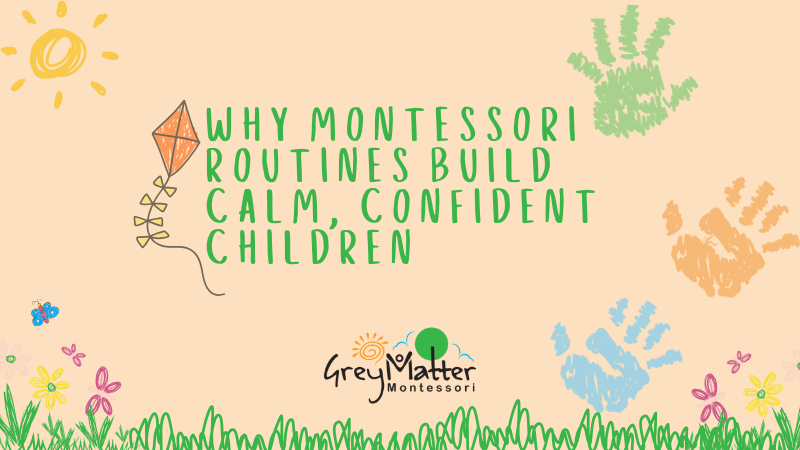Preschool is a magical time in your child's life, filled with wonder and discovery. As parents, we cherish the opportunity to witness our little ones take their first steps towards independence and learning. But there's more to preschool than just play and crayons; it's a crucial period for nurturing your child's emotional intelligence (EQ). Emotional intelligence encompasses the ability to understand, manage, and express emotions effectively, and preschool lays the foundation for these vital skills. In this article, we'll explore how preschool can be a nurturing ground for emotional intelligence development, helping your child not only academically but also socially and emotionally.
As parents, we naturally want what's best for our children, and that extends beyond academic success. Emotional intelligence is a priceless gift we can offer our preschoolers, providing them with the tools to navigate the complexities of emotions and relationships throughout their lives. Preschool offers a unique environment for children to begin their emotional intelligence journey, and understanding its significance empowers us to actively support our little ones' growth in this essential area.
Fostering Self-Awareness
Self-awareness is a cornerstone of emotional intelligence, and preschool is where it begins. In the preschool setting, children start recognizing and understanding their own emotions. Teachers use storytelling, art, and simple discussions to help kids identify their feelings, whether it's joy, frustration, sadness, or excitement. Through these activities, preschoolers learn to put words to their emotions.
As parents, we can complement this growth at home by actively engaging in conversations about emotions. When your child expresses their feelings, encourage them to describe what they're experiencing. Ask open-ended questions and validate their emotions. By doing so, you're helping them build a strong foundation of self-awareness, a skill that will empower them to make better choices and relate to others more effectively as they grow.
Nurturing Empathy and Social Skills
Preschool is a realm where young children start interacting with their peers in a structured and supervised environment. These interactions provide invaluable opportunities for the development of empathy and social skills. Teachers often use group activities to encourage children to work together, share, and take turns. They also teach the concept of empathy by helping kids understand how others might feel in different situations.
As parents, we can support this growth by arranging playdates and encouraging positive friendships. Model empathy in your own interactions and guide your child to consider their friends' feelings. Empathy is the key to building strong relationships and navigating social situations with grace and sensitivity. By emphasizing its importance during the preschool years, you're setting the stage for your child to be a caring and compassionate individual.
Teaching Emotional Regulation
Preschool isn't just about recognizing and understanding emotions; it's also about learning how to manage them effectively. Emotional regulation is a crucial aspect of emotional intelligence, helping children cope with stress, frustration, and disappointment in healthy ways. In the classroom, teachers guide children in calming techniques, such as deep breathing and mindfulness exercises. They also teach conflict resolution strategies, encouraging kids to express their feelings without resorting to aggression.
At home, we can reinforce these lessons by providing a safe space for our preschoolers to express their emotions without judgment. Encourage them to use calming techniques when they're upset, like taking deep breaths or counting to ten. Teach them problem-solving skills and how to communicate their needs and feelings assertively. By arming your child with these tools, you're empowering them to become emotionally resilient individuals.
In conclusion, preschool is a precious stage in your child's development, a time of growth and discovery that extends beyond academics. By recognizing the significance of emotional intelligence and actively nurturing its development during these formative years, you're providing your child with a valuable foundation for a successful and fulfilling life. Self-awareness, empathy, and emotional regulation are the pillars of emotional intelligence that find their roots in preschool.
As parents, we play an essential role in reinforcing these lessons at home. Listen to your child's feelings, foster empathy, and equip them with tools for emotional regulation. By doing so, you're setting your child on a path to becoming emotionally intelligent, allowing them to navigate the complexities of human relationships and emotions with confidence and empathy. Ultimately, your investment in their emotional growth during preschool will pay dividends throughout their lives, enabling them to thrive academically, socially, and emotionally.
Written on behalf of Grey Matter Montessori.
FAQs
Q: How can I help my preschooler become more aware of their emotions?
A: Parents can assist by actively listening when their child talks about their feelings, encouraging them to express emotions, and engaging in age-appropriate conversations about how emotions work and what they mean.
Q: What steps can I take to nurture empathy and social skills in my preschooler?
A: To foster empathy, parents can encourage positive friendships, organize playdates, and set a good example by demonstrating empathy themselves. It's also helpful to teach concepts like sharing and considering how others feel.
Q: What techniques can I use to teach my preschooler to handle their emotions effectively?
A: Preschoolers can learn emotional regulation through simple techniques such as deep breathing, counting, or using calming strategies like hugging a stuffed animal. Parents can reinforce these skills at home by providing a safe space for emotional expression, teaching problem-solving, and promoting assertive communication.






